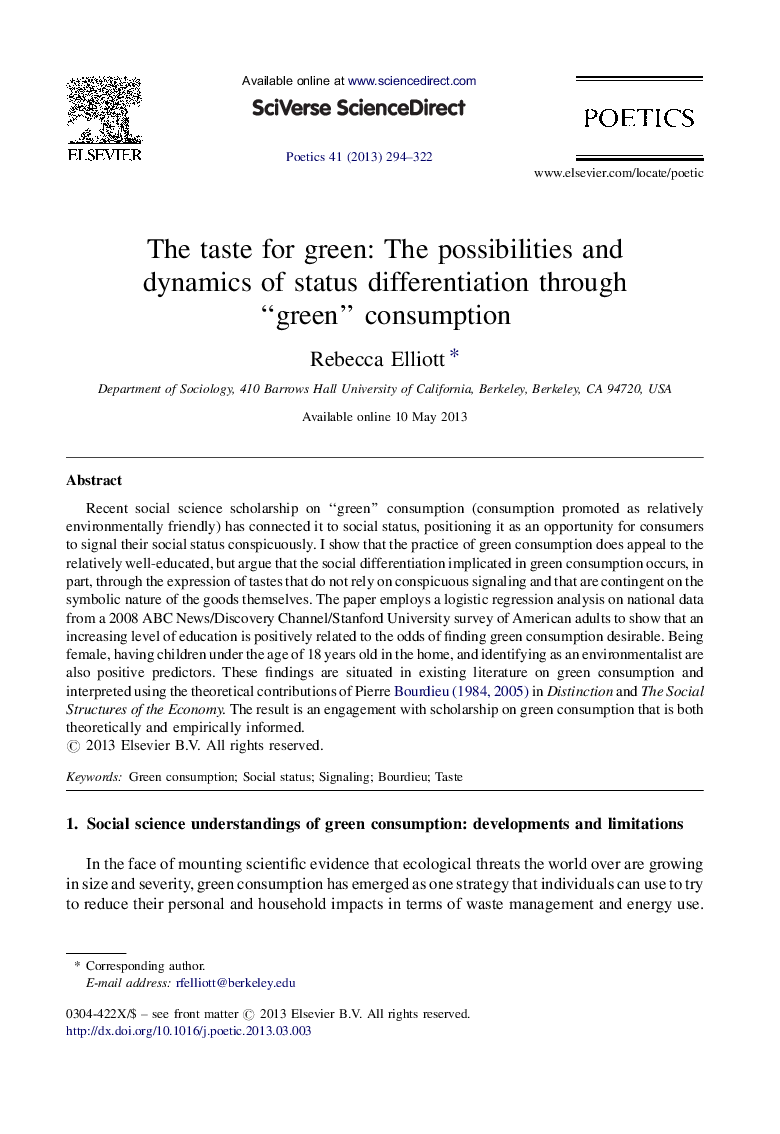| Article ID | Journal | Published Year | Pages | File Type |
|---|---|---|---|---|
| 1128350 | Poetics | 2013 | 29 Pages |
•Use a logit model to identify predictors of reported green consumption.•Data from a 2008 national (U.S.) adult survey on Americans and the environment.•Positive predictors: education, being female, parenthood, environmentalist identity.•Assesses results with Bourdieu's theorizations of taste, homologies of position.•Social status is implicated, but not always through conspicuous signaling.
Recent social science scholarship on “green” consumption (consumption promoted as relatively environmentally friendly) has connected it to social status, positioning it as an opportunity for consumers to signal their social status conspicuously. I show that the practice of green consumption does appeal to the relatively well-educated, but argue that the social differentiation implicated in green consumption occurs, in part, through the expression of tastes that do not rely on conspicuous signaling and that are contingent on the symbolic nature of the goods themselves. The paper employs a logistic regression analysis on national data from a 2008 ABC News/Discovery Channel/Stanford University survey of American adults to show that an increasing level of education is positively related to the odds of finding green consumption desirable. Being female, having children under the age of 18 years old in the home, and identifying as an environmentalist are also positive predictors. These findings are situated in existing literature on green consumption and interpreted using the theoretical contributions of Pierre Bourdieu, 1984 and Bourdieu, 2005 in Distinction and The Social Structures of the Economy. The result is an engagement with scholarship on green consumption that is both theoretically and empirically informed.
